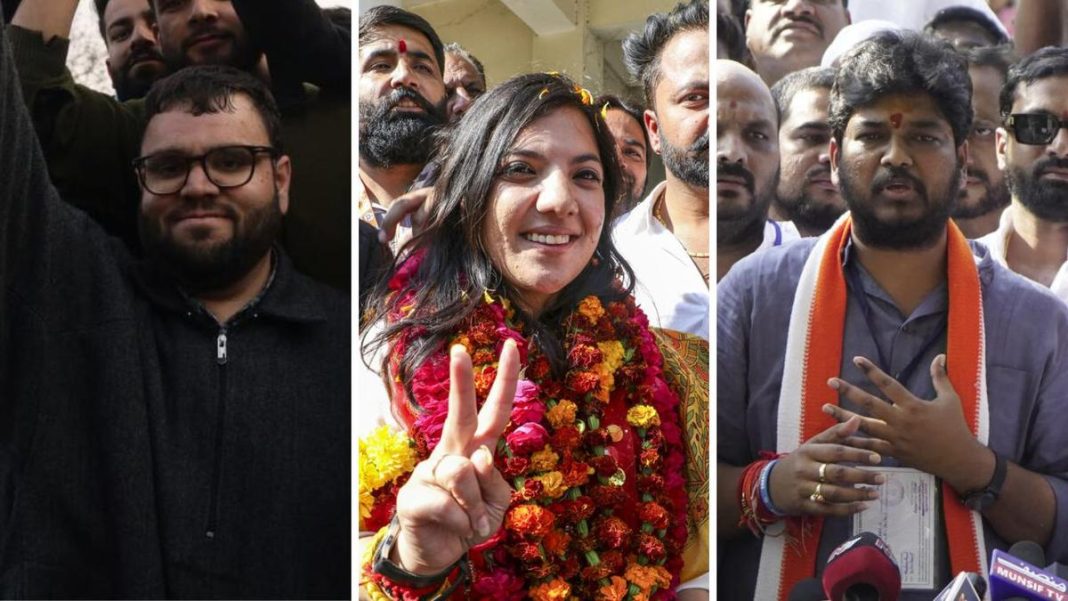The recent round of assembly by-elections across various states has once again offered a nuanced glimpse into the evolving political landscape of India. With results declared, the two national behemoths, the Indian National Congress (INC) and the Bharatiya Janata Party (BJP), each managed to secure two seats. However, perhaps the most significant takeaway from these polls is the notable setback for the National Conference (NC), which lost a long-held stronghold, signaling a potential shift in regional dynamics.
The National Contest: A Balance of Power
The bypoll outcomes present a mixed bag for both the Congress and the BJP, demonstrating the localized nature of these contests while still offering insights into broader trends. The BJP’s victories, for instance, in a seat like Ramgarh in Rajasthan and another in Nalbari in Assam, underscore its continued organizational strength and the resonance of its development agenda in certain pockets. These wins are particularly important for the BJP as they reinforce its presence in states where it faces strong regional or national opposition, providing a morale boost ahead of upcoming state elections.
On the other hand, the Congress’s success in crucial constituencies such as Jageshwar in Uttarakhand and a significant win in Chikkamagaluru in Karnataka indicates its ability to effectively mobilize voter sentiment on local issues and harness anti-incumbency where it exists. For the grand old party, these victories are vital, offering proof of concept for its strategies and providing a platform to rebuild its narrative, especially in states where it seeks to regain lost ground or consolidate its position. The even split between these two national parties suggests that while no single wave dominated, both retain significant, albeit geographically specific, electoral muscle.
Regional Repercussions: NC’s Loss of a Bastion
While the national parties vied for equilibrium, the most striking development unfolded in the regional sphere, particularly concerning the National Conference. The party’s defeat in its traditional stronghold of Baramulla South in Jammu & Kashmir marks a pivotal moment. Baramulla South, historically a bastion for the NC, has long been viewed as an indicator of the party’s sway in the Kashmir Valley. This loss is more than just one seat; it represents a significant dent in the party’s dominance and could trigger introspection within its ranks regarding strategy and leadership.
The reasons behind such a defeat are often complex, ranging from local dissatisfaction, the emergence of strong alternative candidates, or a changing demographic and political consciousness. Whatever the underlying factors, this outcome will undoubtedly embolden opposing regional parties and independent candidates in J&K, potentially reshaping the political discourse in the union territory. “This loss for the National Conference is a clear signal that traditional loyalties are no longer enough,” observed political analyst Dr. Priya Sharma. “Voters are increasingly looking for tangible development and fresh leadership, even in areas historically considered unshakeable strongholds.” This sentiment underscores a broader trend where regional parties, once seemingly invincible, are now facing heightened scrutiny and competition.
What Lies Ahead: Implications for State and National Politics
The bypoll results, while limited in scope, offer valuable lessons and pointers for the political parties. For the BJP and Congress, the even split suggests that the battle for electoral supremacy will remain intensely competitive, with neither party currently enjoying a clear advantage across the board. Their respective wins highlight the importance of localized campaign strategies, candidate selection, and addressing specific regional concerns rather than relying solely on national narratives.
For the National Conference, the loss of its stronghold is a stark reminder of the shifting political sands in Jammu & Kashmir, urging a critical reassessment of its outreach and policies. It could pave the way for newer political voices and configurations in the union territory. As India moves closer to a series of crucial state elections and the next general election, these bypoll outcomes serve as a compelling prelude, reminding political players that every single seat, every single vote, and every local issue holds the potential to influence the larger political narrative.
The results underscore an electorate that is increasingly discerning, capable of delivering varied verdicts based on local contexts and specific promises. The by-elections, therefore, stand as a testament to the dynamic and often unpredictable nature of Indian democracy.




